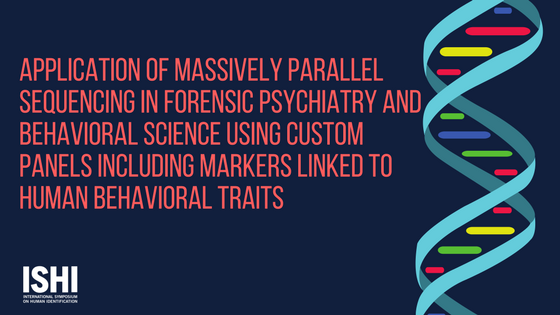Behavior is affected by both the environment and genetics. Oxytocin and serotonin are two main neurotransmitters that are associated with social behavior. Genes associated with oxytocin and serotonin contain polymorphic sites that can be studied in order to relate or link to certain behavioral traits. Single nucleotide polymorphisms (SNPs) are single base variations found at a specific location of the genome. While some associations between SNPs and behavior have been reported, previous studies have been limited on the number of SNPs analyzed. Massively parallel sequencing (MPS) is a newer technology that provides an opportunity to analyze a large a large number of markers simultaneously. A custom primer can be designed in order to include markers targeted for specific biochemical pathways. The purpose of this research was to explore the use of MPS in the behavioral genetics field and determine if there were any associations between these markers and social behavior.
Submitted by: Elizabeth Chesna, BS, EMT-B
Buccal swabs were collected from Sam Houston State University students (N=100). Each participant completed a survey designed to assess multiple behaviors including psychopathy, empathy, and antisocial behavior. This study analyzed two SNPs located within the intron region of the oxytocin gene (rs877172 and rs4813625) and three SNPs located within the serotonin transporter gene (rs25531, rs6314 exonic, and rs6311) using single base extension and MPS. Two SNPs were analyzed using both methods to determine if the results were concordant. This research was performed in collaboration with the biosocial group at the College of Criminal Justice at Sam Houston State University.
It was found that allele/genotype frequencies were similar to previous reported Caucasian populations published in PubMed. SNPs analyzed using both methods were compared and all alleles called were concordant between the two methods. This indicates the custom primer panel for MPS may be used to assess a large panel of behavioral markers. Regression analysis was used to determine if there were any associations between variants and behavior. Significant associations were found for SNPs rs25531 and rs877172. The results provide some evidence that oxytocin and serotonin influence behaviors including drug use/distribution, property crime, and antisocial behavior.
Antisocial and aggressive behavior has been associated with criminal activity. The United States currently has the largest incarceration rate in the world. Furthermore, these behaviors are two of the leading causes of mental health referrals. Results of this research may help explain which mechanisms and central pathways are involved in the origin and development of aggressive and antisocial behavior. It also may show biological vulnerabilities and the effect of varying concentrations of these neurotransmitters in the brain. Moreover, it may be useful in developing treatments for addiction, depression, anxiety, and other types of behavior.
I would have to say that my interest [in this project] really sparked during my undergraduate time at Concordia University Texas. I was a biology major and one of my favorite classes was genetics. I also decided to add a minor in behavioral sciences which gave me the opportunity to learn more about criminology and psychology. The combination between genetics and behavior became my passion and I was able to find a project at Sam Houston that really suited my interests because this projects focuses on the genetic aspect behind social behavior.
My future research focuses on using multiple forms of analysis to better understand social behavior. Behavior is a complex process and depends on multiple neural pathways. In order to more fully understand behavior, pharmacological and behavioral testing also need to be performed. My research will focus on the same type of behavior, but use a multidisciplinary approach to determine the etiology of aggressive and antisocial behavior.
WOULD YOU LIKE TO SEE MORE ARTICLES LIKE THIS? SUBSCRIBE TO THE ISHI BLOG BELOW!


